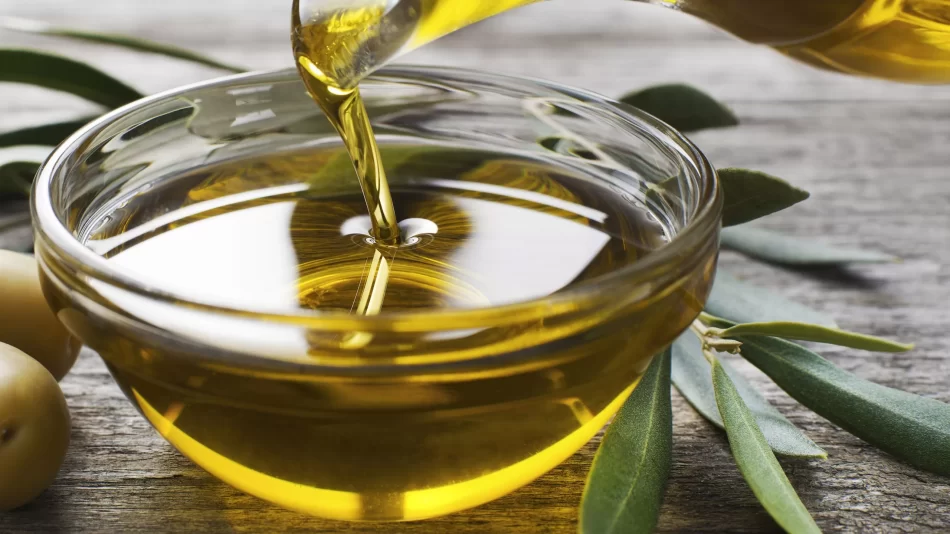The pursuit of healthy and glowing skin has been a concern for many individuals, and it is no surprise that the beauty industry continues to offer various products and treatments to cater to this need. However, what if we told you that achieving excellent skin care does not entirely rely on external factors but also on our diet? Yes, you read it right! What we eat plays a significant role in maintaining healthy skin. In this article, we will discuss how oil is an essential ingredient in our diet for excellent skincare and introduce wellhealthorganic.com as your go-to source for organic oils to include in your daily meals.
Wellhealthorganic.com provides a range of organic oils that can enhance one’s dietary intake while promoting healthy skin from within.
The Importance of Diet for Skin Care
wellhealthorganic.com: diet-for-excellent-skin-care-oil-is-an-essential-ingredient, The importance of diet for skin care cannot be overstated. A healthy and balanced diet is essential for maintaining good skin health, as well as preventing various skin problems such as acne, rosacea, eczema, and psoriasis. One of the most important components of a healthy diet for skin care is oil.
Oil is an essential ingredient in any skincare routine because it helps to keep the skin moisturized and hydrated. It also helps to protect the skin from environmental factors like pollution and UV radiation. The best types of oils for skincare are those that are rich in antioxidants and vitamins, such as vitamin E, which can help to reduce inflammation and promote healing.
In addition to oil, other important components of a healthy diet for skin care include fruits and vegetables, whole grains, lean protein sources like fish or chicken breast, nuts, and seeds. These foods contain nutrients that help to nourish the body’s cells including those in the skin. By eating a healthy and balanced diet with plenty of these nutrient-rich foods along with adequate hydration will contribute greatly towards enhancing your overall skin health.
Why Oil is Essential for Skin Health
Oil is an essential component for skin health as it helps to maintain the skin’s natural moisture levels and prevents dryness. Dry skin can lead to a range of issues, such as premature aging, flaking, and itching. Additionally, oils help strengthen the barrier function of the skin, which protects it from environmental stressors like pollution and UV rays.
Certain oils are also rich in antioxidants and anti-inflammatory properties that have proven to be beneficial for maintaining healthy skin. For instance, argan oil is known for its high levels of vitamin E and fatty acids that help protect against sun damage while reducing inflammation. Similarly, olive oil contains polyphenols that protect against oxidative stress, a major contributor to premature aging.
Overall, incorporating oils into your skincare routine can provide numerous benefits for maintaining healthy skin. It is important to choose high-quality oils that are suitable for your specific skin type to ensure optimal results.
Types of Oils to Incorporate into Your Diet
When it comes to maintaining a healthy diet, incorporating different types of oils can be beneficial for overall health. Extra virgin olive oil is a popular choice due to its high content of monounsaturated fats and antioxidants that help reduce inflammation and protect against chronic diseases. Another oil to consider is coconut oil, which contains medium-chain triglycerides that are easily converted into ketones for energy and may aid in weight loss.
Flaxseed oil is another option, rich in omega-3 fatty acids that support heart health and brain function. It’s important to note that flaxseed oil should not be used for cooking as it has a low smoke point and can become rancid quickly. Avocado oil is also gaining popularity due to its high smoke point, making it suitable for cooking at high temperatures without breaking down or producing harmful compounds.
Incorporating various oils into your diet can provide an array of health benefits, but moderation is key as they are still a source of fat with caloric value. Aim for 2-3 tablespoons per day spread throughout meals and snacks.
Recipes for Incorporating Oil into Your Diet
Incorporating oil into your diet can seem daunting, especially if you’re used to low-fat or fat-free foods. However, adding healthy oils to your meals can provide a wealth of benefits for your overall health and well-being. One simple way to incorporate oil is by using it as a salad dressing. Olive oil and avocado oil are both great options that can add flavor and healthy fats to your greens.
Another way to incorporate oils is by cooking with them. Coconut oil is a versatile option that can be used for sautéing, baking, and even as a replacement for butter on toast. Additionally, flaxseed oil is an excellent source of omega-3 fatty acids that can be added to smoothies or drizzled over cooked vegetables for an extra boost of nutrients. By incorporating these healthy oils into your diet, you’ll not only improve the taste of your meals but also support optimal health and wellness.
Other Dietary Factors that Affect Skin Health
In addition to oil, there are other dietary factors that can affect skin health. One of these is water. Drinking enough water throughout the day helps keep the skin hydrated and prevents it from becoming dry and flaky. Dehydration can also cause a dull complexion, so staying properly hydrated can help the skin look more vibrant.
Another important dietary factor for skin health is antioxidants. Antioxidants such as vitamins A, C, and E help protect the skin from damage caused by free radicals in the environment. Foods rich in antioxidants include berries, leafy greens, nuts, and seeds. Incorporating these foods into your diet can help promote healthy-looking skin.
Finally, consuming too much sugar or processed foods can negatively impact skin health. These types of foods have been linked to inflammation in the body which can manifest as acne or other skin issues. Eating a balanced diet full of whole foods and limiting the intake of sugary or processed snacks can help maintain clear and healthy-looking skin.
Conclusion: Eating for Healthy, Glowing Skin
In conclusion, the foods we eat have a direct impact on our skin’s health and appearance. Incorporating nutrient-rich foods like leafy greens, fatty fish, and fruits can provide essential vitamins and antioxidants that nourish our skin from within. Additionally, staying hydrated by drinking enough water and avoiding excessive alcohol consumption can help maintain healthy skin.
Furthermore, reducing processed and sugary foods in our diet can also improve our skin’s overall health. Such foods do not provide any essential nutrients for the body but instead, lead to inflammation and breakouts. Lastly, it is crucial to remember that no single food or nutrient can be a miracle cure for all your skin concerns. A balanced diet coupled with good skincare practices will ultimately result in healthy glowing skin.
Read Also….wellhealthorganic-com-know-about-the-health-benefits-of-dates









